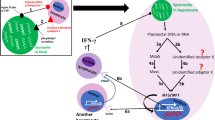Abstract
Mosquito bites can elicit dermal hypersensitivity reactions, but little is known about the chemotactic factors for host leukocytes in mosquito saliva. In this study, we determined that saliva from a malarial vector mosquito, Anopheles stephensi, possesses intense neutrophil chemotactic activity. In contrast, the midgut extract had only marginal neutrophil chemotactic activity. Eosinophil chemotactic activity was detected in the midgut but not in the saliva. According to the results of size-exclusion HPLC on a G3000SW column and Western blot analysis, the apparent molecular weight (MW) of the main neutrophil chemotactic factor (NCF) was estimated to be 200 kDa. NCF could bind with IgG from the pooled serum of Solomon islanders, whereas not with that of healthy Japanese. NCF activity was increased upon heating to 56°C for 30 min or protease digestion, whereas it was affected by periodate treatment. Protease-digested NCF and naive NCF bound to lentil lectin-Sepharose, and both were eluted with a competitive sugar, methyl-α-D-glucoside. These results indicate that A. stephensi saliva-derived NCF is a high MW glycoprotein, and its protein moiety is important for neutrophil chemotactic activity. This NCF is thought to contribute to the inflammatory reactions through the accumulation of neutrophils at the site of the mosquito bite.
Similar content being viewed by others
Author information
Authors and Affiliations
Additional information
Electronic Publication
Rights and permissions
About this article
Cite this article
Owhashi, M., Harada, M., Suguri, S. et al. The role of saliva of Anopheles stephensi in inflammatory response: identification of a high molecular weight neutrophil chemotactic factor. Parasitol Res 87, 376–382 (2001). https://doi.org/10.1007/s004360000355
Received:
Accepted:
Published:
Issue Date:
DOI: https://doi.org/10.1007/s004360000355




